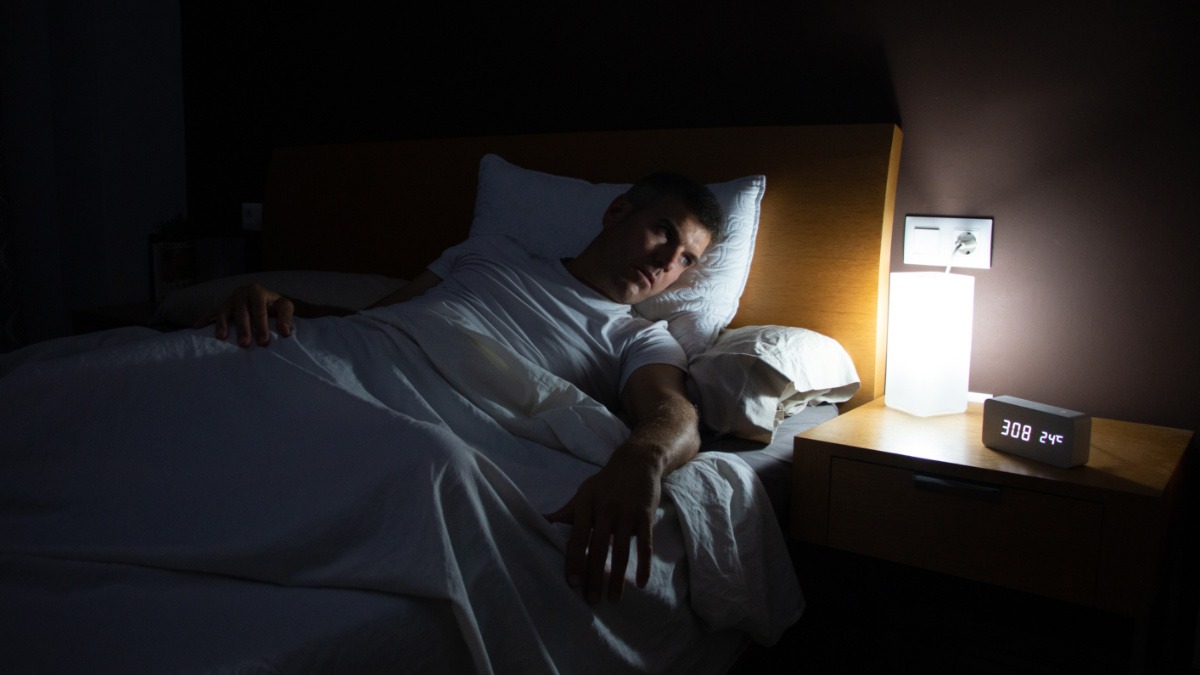Diagnosing Depression in Your Sleep: TrivarX delivers positive Phase 2 study results

There’s a well-established connection between mental health conditions and sleep. Pic: Getty Images.
- TrivarX announces positive results from Phase 2 Sleep Signal Analysis for current Major Depressive Episode (SAMDE) study using MEB-001 – a major derisking event
- AI-driven algorithm MEB-001 uses EEG and ECG signals recorded during sleep to assist in the accurate diagnosis of a current major depressive episode
- TrivarX says results provide strong validation of MEB-001’s ability to assist in the improved screening and diagnosis of a current major depressive episode (cMDE)
Special Report: TrivarX has achieved a key milestone on its quest to develop the first depression screening tool for use in clinical practice in sleep centres.
The Company announced positive results from its comprehensive Phase 2 sleep signal analysis for current major depressive episode (SAMDE) study using MEB-001, its proprietary depression screening algorithm.
AI-focused mental health tech company TrivarX (ASX:TRI) says the results provide strong validation of MEB-001 and its ability to assist in the more effective screening of a current major depressive episode (cMDE).
MEB-001 uses EEG and ECG signals recorded during sleep to identify cMDE – a condition which is commonly misdiagnosed.
Analysis of the results showed that MEB-001 reported promising performance across key parameters namely sensitivity, specificity, positive predictive value and negative predictive value.
‘Significant achievement in company’s history’
Non-executive chairman David Trimboli said the Phase 2 results highlight the effectiveness of MEB-001 in screening for cMDE, particularly given improvements to the underlying algorithm.
“This is underscored by the significant increase in sensitivity coming from recent improvements to the underlying algorithm, which increased from 71% in Phase 1 to 87% in Phase 2 – demonstrating that the algorithm can successfully identify more people with cMDE,” he said.
The Negative Predictive Value (NPV) of 97% is another important indicator of the quality of the results, highlighting that where MEB-001 assessed that a patient didn’t have depression it was accurate 97% of the time.
Just as importantly, the Positive Predictive Value (PPV) of 35% is a strong result, and places MEB-001 at the upper end of the industry standard for effective depression screening.
In aggregate, the results equate to a significant derisking event for TrivarX, highlighting the technology’s potential use-case in a market where there is no established competitor or incumbent technology for improved depression screening and diagnostics.
“There is currently no screening undertaken for cMDE in sleep centres in the US or globally and our most recent results reaffirm the potential of MEB-001 to become the first depression screening tool used in clinical practice in sleep centres – thus marking a significant achievement in the company’s history.” Trimboli added.
Performance summary
The objective of the study was to use MEB-001 to detect the likelihood of a cMDE using clinician reporting outcomes assessment in individuals referred to a sleep clinic.
There were 400 patients recruited across 15 sleep centres in the US. Out of these, 73 patients were excluded due to incomplete data or a split night/titration sleep study.
MEB-001 also automatically identified 32 patients with significant anomalies in their sleep data.
TRI says its MEB-001 algorithm was locked prior to the analysis, ensuring no data from the Phase 2 study was used in its training.
Improved health outcomes
TRI says there is a well-established connection between mental health conditions, such as depression, and sleep disturbances.
Industry analysis shows that people who have insomnia may have tenfold higher risk of developing cMDE and among people with depression, 75% of sufferers have trouble falling or staying asleep.
TRI says furthermore, misdiagnosis of major depressive disorder is estimated at upwards of 65% in the US.
The company says depression screening is not routinely included in sleep studies, even though up to 21% of people undergoing a sleep study have depression.
The positive results from its Phase 2 SAMDE Study leave TrivarX well positioned ahead of the next round of regulatory engagement with the US Food & Drug Administration (FDA).
TrivarX has established a defined pathway to US FDA regulatory approval via the De Novo submission for novel health treatments. Prior to its Phase 2 results, the Company held multiple pre-submission meetings with the US FDA where it gained positive feedback on its stated approval pathway.
This article was developed in collaboration with TrivarX, a Stockhead advertiser at the time of publishing.
This article does not constitute financial product advice. You should consider obtaining independent advice before making any financial decisions.
Related Topics

UNLOCK INSIGHTS
Discover the untold stories of emerging ASX stocks.
Daily news and expert analysis, it's free to subscribe.
By proceeding, you confirm you understand that we handle personal information in accordance with our Privacy Policy.








